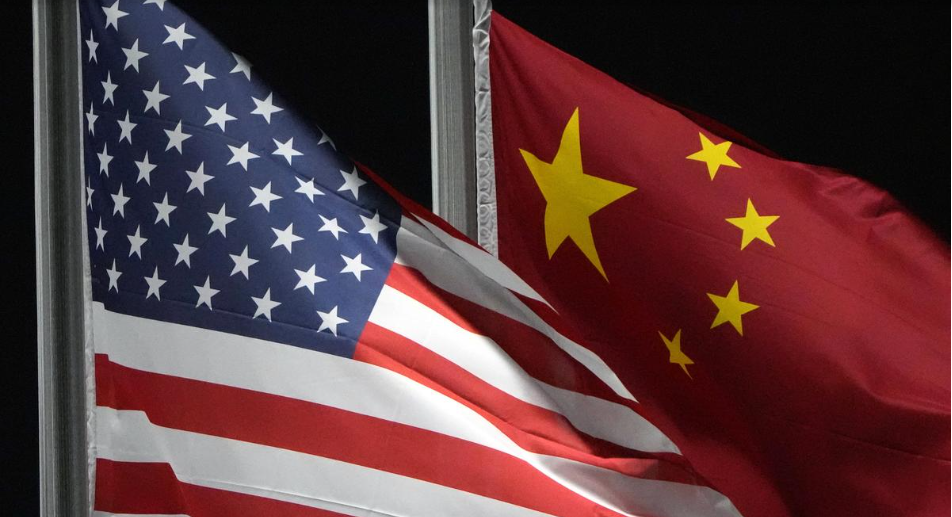1. Introduction: A New Chapter in Cyber Espionage Allegations
Chinese Cyber In a significant development that further strains U.S.-China relations, China’s National Cyber Centre (NCC) has accused the United States of orchestrating a large-scale hacking campaign aimed at stealing trade secrets from Chinese technology firms. This bold claim underscores the escalating cyber espionage war between two of the world’s leading technological and economic powers.
This article explores the allegations, the historical backdrop, Chinese Cyber and the potential repercussions of these accusations on global cybersecurity dynamics and geopolitics.
2. China’s Accusation: The Core Claims
2.1. Unveiling the Alleged Campaign
The NCC’s report accuses the U.S., particularly its National Security Agency (NSA), of:
- Exploiting vulnerabilities in Chinese software systems.
- Gaining unauthorized access to confidential trade secrets and research data.
- Conducting widespread surveillance on China’s tech companies.
2.2. Targets of the Hacking Efforts
According to Chinese officials, major tech giants, AI research hubs, and semiconductors firms were the primary targets of these cyberattacks. Companies like Huawei and Byte Dance, Chinese Cyber which are pivotal to China’s tech ambitions, reportedly faced advanced persistent threats.
3. Historical Context: Cyber Espionage Between U.S. and China
3.1. A Decade of Digital Cold War
The U.S. and China have accused each other of cyber espionage for over a decade. Notable incidents include:
- The 2015 Office of Personnel Management breach, attributed to Chinese hackers, compromising millions of U.S. federal employees’ records.
- Allegations of Chinese theft of U.S. military designs and intellectual property in fields like quantum computing and aerospace.
3.2. U.S. Counterclaims
The United States has repeatedly accused China of industrial espionage, Chinese Cyber emphasizing its belief that state-backed actors steal intellectual property to advance Beijing’s technological goals.
4. Key Details from the NCC Report
4.1. Methodology of Alleged Hacking
The report provides insights into advanced techniques used by alleged U.S. operatives:
- Zero-day exploits to penetrate secure systems.
- Use of phishing campaigns to compromise employee credentials.
- Deployment of Trojan software to exfiltrate sensitive information.

4.2. Evidence Presented
China claims to possess:
- Digital forensics, including IP addresses linked to U.S.-based servers.
- Logs of data transmission between compromised Chinese systems and foreign entities.
5. Reaction from the United States
5.1. U.S. Response
The U.S. government has dismissed the allegations, Chinese Cyber labeling them as baseless and politically motivated. Washington argues that the Chinese government frequently uses such claims to deflect attention from its cyber activities.
5.2. Broader Concerns About China
American officials have reiterated concerns about Beijing’s role in undermining global cybersecurity norms, accusing Chinese state-sponsored actors of numerous cyberattacks on American entities.
6. Impact on U.S.-China Relations
6.1. Deepening Mistrust
The NCC’s accusations come at a time when relations between Washington and Beijing are already tense over issues like:
- Trade disputes.
- Taiwan’s status.
- Military maneuvers in the South China Sea.
6.2. Escalation in the Tech War
This allegation further amplifies the tech war, Chinese Cyber with both nations vying for dominance in semiconductors, AI, Chinese Cyber and 5G technologies. The accusations could prompt stricter restrictions on bilateral technology trade.
7. Implications for Global Cybersecurity
7.1. Rise in Cyber Espionage
As countries increasingly rely on digital infrastructure, cyber espionage has emerged as a critical battleground for geopolitical rivalries.
- The alleged U.S. campaign signals the sophisticated capabilities nations now deploy.
- Businesses globally could face increased vulnerabilities.
7.2. Challenges for Multilateral Cyber Norms
Accusations like these complicate ongoing international efforts to establish norms and agreements around responsible state behavior in cyberspace.
8. Expert Perspectives on the Allegations
8.1. Analysts’ Opinions
Experts are divided on the credibility of the allegations:
- Supporters of China’s claim argue that the U.S.’s extensive intelligence capabilities make such activities plausible.
- Skeptics highlight the absence of publicly available corroborative evidence from Beijing.
8.2. Broader Industry Concerns
Global tech firms fear becoming pawns in the escalating cyber conflict, calling for independent investigations and stronger regulatory frameworks.
9. Reactions from Key Stakeholders
9.1. Chinese Companies
Victimized companies have demanded compensation and stricter government measures to protect national tech assets.
9.2. International Community
Allies of both nations have refrained from taking sides, Chinese Cyber urging transparency and dialogue to address the issue.
10. Looking Ahead: A Call for Accountability
10.1. Strengthening Cyber Defenses
Countries and corporations worldwide are expected to invest more in cybersecurity infrastructure, anticipating future threats.
10.2. Diplomacy Over Aggression
Efforts to curb cyber conflicts could see renewed emphasis, Chinese Cyber with multilateral bodies like the United Nations proposing enforceable guidelines.
11. Conclusion: A Clouded Digital Landscape
The NCC’s allegations mark another flashpoint in the U.S.-China rivalry, reinforcing the growing centrality of cyberspace in geopolitical confrontations. While the truth behind these claims remains contested, they underscore the urgent need for transparency, robust cybersecurity measures, Chinese Cybe and international cooperation to prevent the exploitation of digital domains for espionage.
As the world watches this drama unfold, one thing is clear: the digital frontier is fast becoming the arena where the battles of the future will be fought—and perhaps, ultimately resolved. ALSO READ:- Supreme Court Says ‘Our Doors Are Always Open to Protesting Farmers’: Balancing Judicial Intervention and Farmers’ Rights 2024